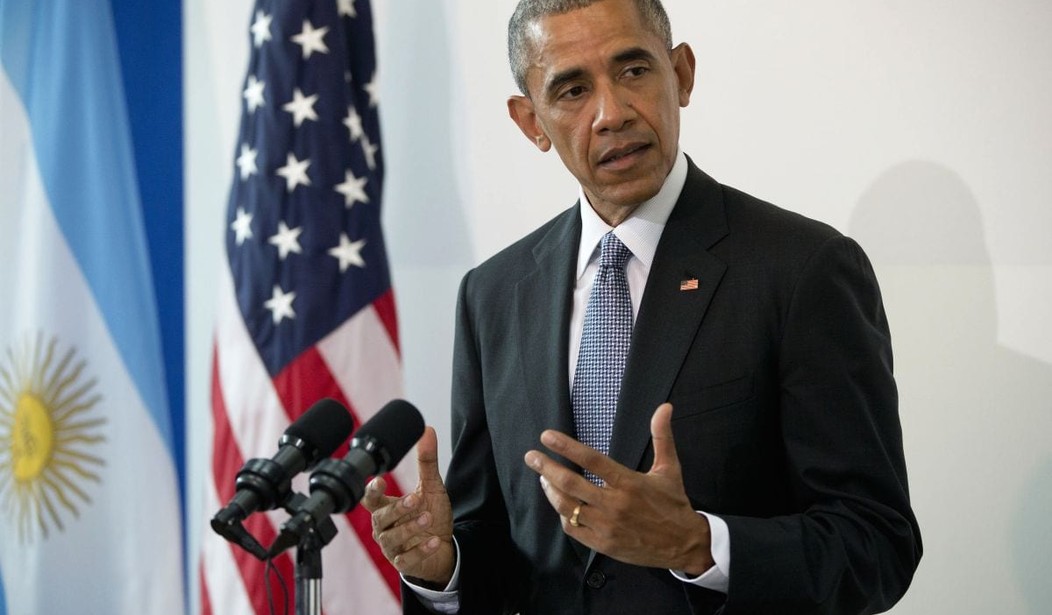It was 40 years ago that the Argentine military overthrew the civilian government that had been unable to deal with Marxist guerrillas and left-wing violence in general. What followed was a brutal suppression of human rights and murder on an unimaginable scale by the military.
It’s estimated that at least 20,000 people were “disappeared” during the years 1976-83. Nearly half were anti-government guerillas. But the rest were civilians — Marxists, socialists, liberals, labor leaders, journalists … anyone who spoke up against the junta.
The U.S. did not openly support the military’s tactics, but we didn’t say very much against them either. This left an opening for President Obama to apologize to the Argentinian people for our lack of enthusiasm in working to overthrow a government battling a communist insurgency.
“There has been controversy about the policies of the United States early in those dark days,” Obama said while visiting a memorial park in Buenos Aires dedicated to victims of the dictatorship.
“Democracies have to have the courage to acknowledge when we don’t live up to the ideals that we stand for. And we’ve been slow to speak out for human rights and that was the case here,” he said.
Obama’s trip, winding up later on Thursday, is part of a wider effort to deepen ties and bolster U.S. influence with Latin America after years of frosty relations with left-leaning governments in the region.
With South America’s leftist block now in disarray amid graft scandals and economic recession, Argentina’s new center-right leader, Mauricio Macri, offers Obama a new ally in one of the Americas’ biggest economies.
Obama traveled to Argentina from Cuba, where he became the first sitting U.S. president to visit in 88 years and opened a new chapter in engagement with the Communist-ruled island after decades of hostilities.
That policy shift has boosted Washington’s standing in a region long wary of being treated as the U.S. “backyard”, although U.S. foreign policy under Obama has still been dominated by the Middle East.
The leftists in Argentina were not impressed:
But the U.S. leader was criticized by some rights activists. One group of victims’ relatives said the timing of his visit was a provocation.
“We will not allow the power that orchestrated dictatorships in Latin America and oppresses people across the world to cleanse itself and use the memory of our 30,000 murdered compatriots to strengthen its imperialist agenda,” the Buenos Aires-based Center for Human Rights Advocates said in a statement.
Some Argentines welcomed Obama’s gestures. “Obama is not going to say outright ‘forgive us’, but he’s saying it through his actions,” said Daniel Slutzky, a 75-year-old college professor.
Obama praised Argentina for taking on its past. “Confronting crimes committed by your own leaders, by your own people – that can be divisive and frustrating, but it is essential to moving forward,” he said.
Speaking after Obama, Macri said: “We have to reaffirm our commitment to the defense of democracy and human rights. Every day, somewhere in the world they are jeopardized.”
It’s nice that the president found it within himself to condemn the “dirty war” that the U.S. did nothing to stop. It’s a shame he couldn’t have found the moral courage to make the same criticism of the Castro boys. They’ve been disappearing people for 57 years.
U.S. policies during the Cold War were not always in line with our values. In this particular instance, we could have abandoned the junta and allowed a communist dictatorship to come to power. But as we’ve seen elsewhere, a communist government would have murdered far more than 20,000 people who were killed by the junta and given Moscow a foothold in the Americas. Those were the stakes and, at the time, it didn’t seem like a hard choice.
This doesn’t make our policy right, or “moral.” Our policy was implemented because it was in our interest to do so and the alternative would have created a situation that ran counter to our interests. Sometimes, it is that simple.
If what Obama said makes the people and government of Argentina feel a little better, I have no problem with what he said in the abstract. But if he condemned the brutal regimes he’s cozying up to with as much vigor as he criticizes his own country, his actions would resonate even more.
A version of this piece also appeared at The American Thinker










Join the conversation as a VIP Member